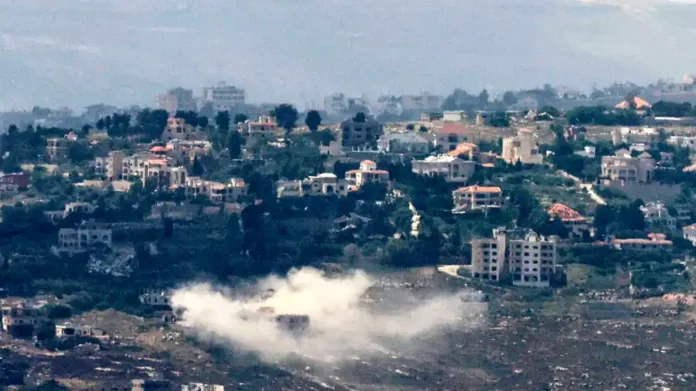Israeli Prime Minister Benjamin Netanyahu has declared preparation for a “very intense” operation following a series of drone attacks targeting the Upper Galilee region, injuring at least 11 individuals.
The war cabinet is set to convene on Thursday to address the situation which has raised concerns about security along the border with Lebanon.
The Israeli military is investigating why the alarm system failed to sound as the drones breached Israel’s airspace and why no interception was made.
Preliminary findings suggest the projectiles were launched intermittently, with some striking a football field in the Druze village of Horfeish.
Netanyahu, who arrived in Kiryat Shmona near the Lebanese border to assess the situation, emphasized Israel’s readiness for a robust response.
“We are prepared for a very intense operation in the north. One way or another, we will restore security to the north,” he stated during his visit.
However, criticism from opposition leader Yair Lapid indicates growing discontent with the government’s handling of the crisis. Lapid, during his visit to the northern border, condemned Netanyahu’s brief appearance, accusing the government of neglecting its responsibilities.
Adding to the complexity of the situation, a report by Human Rights Watch has accused Israel of using white phosphorus munitions in south Lebanon since October of the previous year.
The use of such munitions is considered illegal under international humanitarian law. The report highlights the grave risks posed to civilians and calls for accountability.
Amidst the escalating tensions, the United States has issued a warning against further escalation in Lebanon, emphasizing the importance of a diplomatic resolution to avoid further loss of life and maintain stability in the region.
Meanwhile, efforts to secure a ceasefire and the release of hostages in Gaza continue with talks between Israel and Hamas in Qatar.
CIA Chief William Burns and White House Middle East adviser Brett McGurk are coordinating with mediating parties to push for a deal.
Qatari Prime Minister Mohammed al-Thani and Egyptian intelligence chief Abbas Kamel met with senior Hamas officials in Doha to discuss the Israeli proposal.
Internally, divisions within the Israeli government regarding the potential deal with Hamas have surfaced.
While some ministers advocate for a diplomatic resolution to focus attention on the northern campaign, others, particularly from the far-right, oppose the deal citing lack of transparency from Netanyahu and threatening to withdraw from the government if an agreement is reached.
Public pressure mounts as demonstrations across Israel call for the government to approve a deal for the release of hostages. Families of hostages continue to rally outside the defense ministry headquarters, demanding action.
As tensions persist on multiple fronts, Israel faces critical decisions that could shape the course of its security and diplomatic efforts in the region.
This article was created using automation technology and was thoroughly edited and fact-checked by one of our editorial staff members

